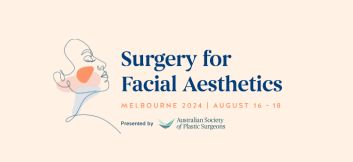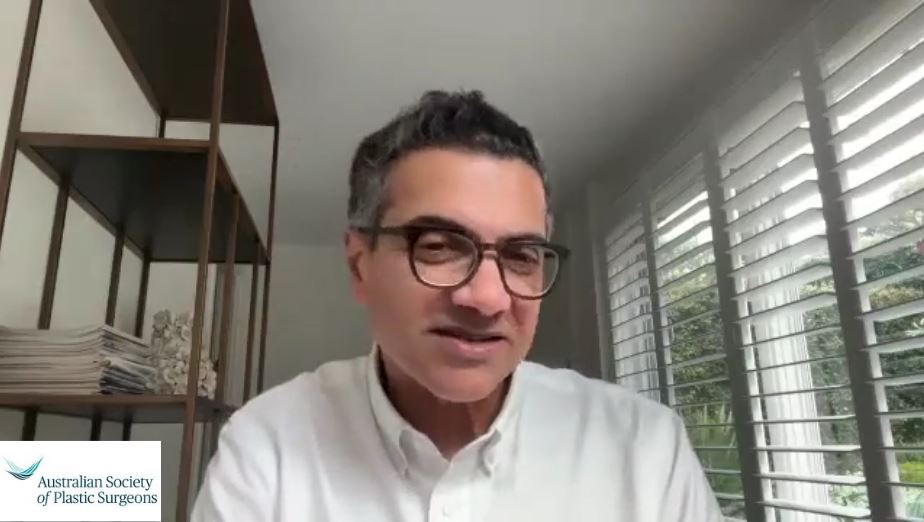About ASPS
Medical Codes and Guidelines
- About Plastic Surgery
- About Specialist Plastic Surgeons
- ASPS Staff
- Australasian Foundation for Plastic Surgery
- Becoming a Specialist Plastic Surgeon
- Ethical Framework
- Events
- Find a Surgeon
- Governance
- In Memory
- Medical Codes and Guidelines
- Partners
- Reference Links
- What We Do
Medical Codes and Guidelines
Download medical codes, policies and guidelines that govern professional medical practice and conduct.
AHPRA Guidelines for practitioners who perform cosmetic and surgical procedures.
New guidelines came into effect 1st July, 2023
These guidelines aim to help inform registered medical practitioners who perform cosmetic medical and surgical procedures.
The Code of Conduct of the Royal Australasian College of Surgeons (RACS) aims to promote the highest standards of surgical care for our community. The Code defines the professional behaviour of surgeons who are Fellows of the College and reflects the values espoused in the College Pledge that is taken by all new Fellows.
Download the RACS Code of Conduct. More information can also be found on the RACS website.
ASPS Code of Practice
An Adjunct to the Medical Board of Australiaand RACS Codes of Conduct. View here.
The main objective of the ACCC Guide is to help the health and medical sector associations, individual practitioners and others assisting in the provision of medical and health services develop strategies that will improve compliance with the Trade Practices Act 1974 (the Act). The Act is one of the main regulatory instruments in relation to promotional activity.
Download a copy of the ACCC guide. More information can also be found on the ACCC website.
The AHPRA Guidelines for Advertising of Regulated Health Services was jointly developed by the national boards under s. 39 of the Health Practitioner Regulation National Law 2009.The purpose of the guidelines is to provide guidance about the interpretation of the provisions of the National Law that apply to advertising of regulated health services.
Download a copy of the revised AHPRA Guidelines (effective 17 March 2014).
More information is available from the Medical Board of Australia.
The Medical Board’s Good Medical Practice describes what is expected of all doctors registered to practise medicine in Australia. It sets out the principles that characterise good medical practice and makes explicit the standards of ethical and professional conduct expected of doctors by their professional peers and the community. The revised Code was published by the Medical Board of Australia in October 2020
Download a copy of Good Medical Practice.
More information is available from the Medical Board of Australia.
The Object of the Therapeutic Goods Advertising Code 2007 is to ensure that the marketing and advertising of therapeutic goods to the public is conducted in a manner that promotes the quality use of therapeutic goods, is socially responsible and does not mislead or deceive the consumer.
Visit the TGA website for more information.
These guidelines explain the requirements for practitioners, employers of practitioners and education providers to make mandatory notifications under the National Law to prevent the public being placed at risk of harm.
Notifiable conduct is defined by Section 140 of the Act as when a practitioner has:
- Practised the profession while intoxicated by alcohol or drugs, or
- engaged in sexual misconduct in connection with their profession, or
- placed the public at risk of substantial harm in their practice because they have an impairment, or
- placed the public at risk of harm during their practice because of a significant departure from professional standards
Download a copy of the Guidelines on Mandatory Notification.
More information is available from the Medical Board of Australia.
These have been developed under section 39 of the Health Practitioner Regulation National Law Act (the National Law) as in force in each state and territory.These guidelines complement Good Medical Practice: A Code of Conduct for Doctors in Australia and provide specific guidance on sexual boundaries in the doctor-patient relationship.
Download a copy of the Sexual Boundaries Guidelines.
More information is available from the Medical Board of Australia.
This document provides advice to help individuals with medical qualifications to decide whether or not they should be registered. It also provides advice about non-practising registration. Download a copy of Medical Registration.
More information is available from the Medical Board of Australia.
The technology-based patient consultations guidelines aim to inform registered medical practitioners and the community about the Board’s expectations of medical practitioners who participate in technology-based patient consultations. Download a copy of the consultation guidelines. Visit the Medical Board of Australia’s website for more information.
The Medical Technology is a self-regulatory industry code that addresses several key areas of industry activity, e.g. claims and endorsements in advertising and promotional material, product training and education, third party educational conferences, hospitality, consultancy and fellowships. Visit the MTAA’s website for more information.
The Australian Charter of Healthcare Rights applies to all health settings anywhere in Australia, including public hospitals, private hospitals, general practice and other community environments. It allows patients, consumers, families, carers and service providers to have a common understanding of the rights of people receiving health care. In July 2008, Australian Health Ministers endorsed the charter as the Australian Charter of Healthcare Rights for use across the country. Visit the ACSQHC website for more information.
The Australian Association of Practice Managers Ltd (AAPM) is the professional organisation representing those persons engaged in the management of healthcare facilities.The Code of Ethical Conduct defines the behavioral standards AAPM expects from its members, including members who are employed by an organisation for provision of personal services or retained as a consultant to organisations within the industry. Visit the AAPM website for more information.
This new National Guidance document provides advice to help individual practitioners understand their obligations when using social media. It applies to all registered health practitioners in Australia. Download a copy of the Social Media Policy.
More information is available from the Medical Board of Australia.
Open disclosure is the open discussion of incidents that result in harm to a patient while receiving health care with the patient, their family, carers and other support persons. The essential elements of open disclosure are outlined in the national Australian Open Disclosure Framework.
Visit the Australian Commission on Safety and Quality in Health Care website for more information.
Featured Stories

Member Blog with Dr Ellis Choy: What is a Deep Plane Facelift?
Who is the ideal candidate for a deep plane facelift?…
Continue reading
